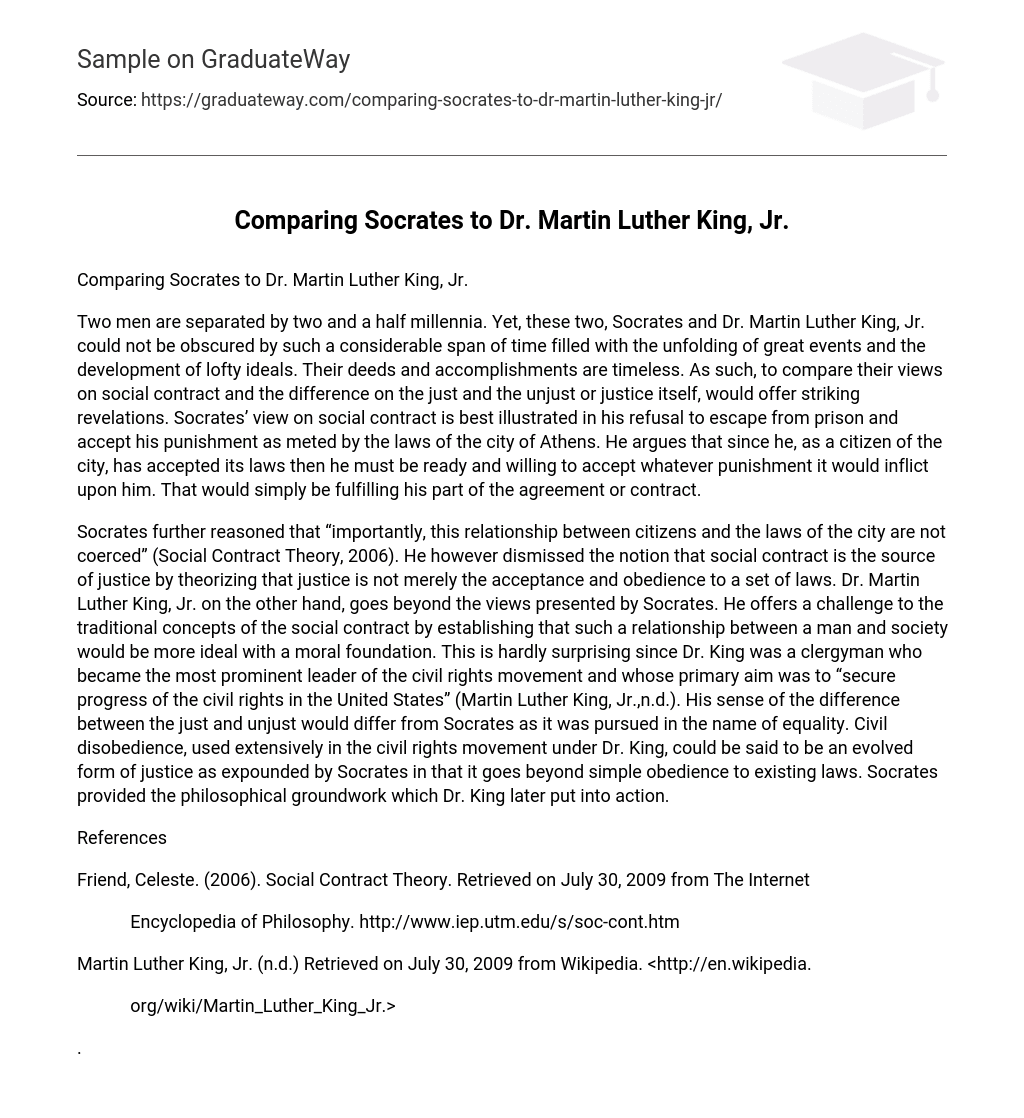Two men are separated by two and a half millennia. Yet, these two, Socrates and Dr. Martin Luther King, Jr. could not be obscured by such a considerable span of time filled with the unfolding of great events and the development of lofty ideals. Their deeds and accomplishments are timeless. As such, to compare their views on social contract and the difference on the just and the unjust or justice itself, would offer striking revelations. Socrates’ view on social contract is best illustrated in his refusal to escape from prison and accept his punishment as meted by the laws of the city of Athens. He argues that since he, as a citizen of the city, has accepted its laws then he must be ready and willing to accept whatever punishment it would inflict upon him. That would simply be fulfilling his part of the agreement or contract.
Socrates further reasoned that “importantly, this relationship between citizens and the laws of the city are not coerced” (Social Contract Theory, 2006). He however dismissed the notion that social contract is the source of justice by theorizing that justice is not merely the acceptance and obedience to a set of laws. Dr. Martin Luther King, Jr. on the other hand, goes beyond the views presented by Socrates. He offers a challenge to the traditional concepts of the social contract by establishing that such a relationship between a man and society would be more ideal with a moral foundation. This is hardly surprising since Dr. King was a clergyman who became the most prominent leader of the civil rights movement and whose primary aim was to “secure progress of the civil rights in the United States” (Martin Luther King, Jr.,n.d.). His sense of the difference between the just and unjust would differ from Socrates as it was pursued in the name of equality. Civil disobedience, used extensively in the civil rights movement under Dr. King, could be said to be an evolved form of justice as expounded by Socrates in that it goes beyond simple obedience to existing laws. Socrates provided the philosophical groundwork which Dr. King later put into action.
References
Friend, Celeste. (2006). Social Contract Theory. Retrieved on July 30, 2009 from The Internet
Encyclopedia of Philosophy. http://www.iep.utm.edu/s/soc-cont.htm
Martin Luther King, Jr. (n.d.) Retrieved on July 30, 2009 from Wikipedia. <http://en.wikipedia.
org/wiki/Martin_Luther_King_Jr.>
.





